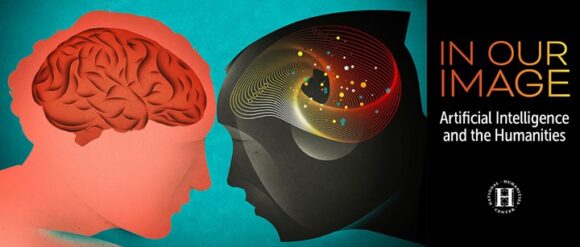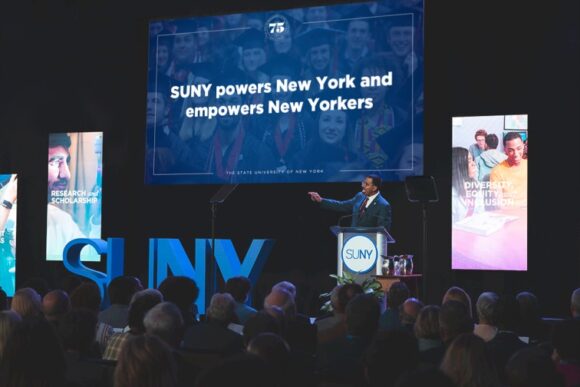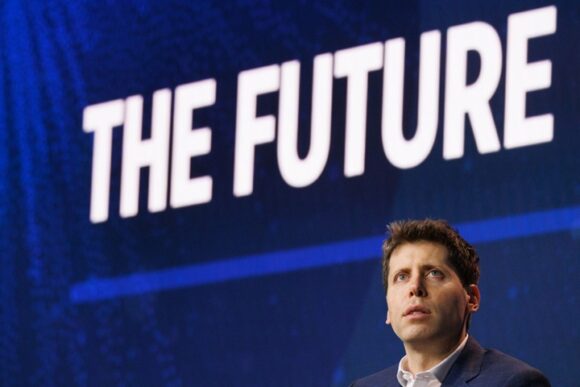 Dear Commons Community,
Dear Commons Community,
Aneesh Raman, a work force expert at LinkedIn, and Maria Flynn, the president of the nonprofit Jobs for the Future, in a guest essay yesterday, argued that the advent of generative artificial intelligence marks a historic turning point for our economy and our society, one as important as the rise of the knowledge economy. They argue that the premium placed on technical skills will fade, leaving us with work that’s anchored more in our uniquely human abilities.
“The early signals of what A.I. can do should compel us to think differently about ourselves as a species. Our abilities to effectively communicate, develop empathy and think critically have allowed humans to collaborate, innovate and adapt for millenniums. Those skills are ones we all possess and can improve, yet they have never been properly valued in our economy or prioritized in our education and training,” they write. “That needs to change.”
They conclude that maybe there’s a future for humanities studies in the age of AI.
Below is the entire essay.
Tony
—————————————————————————————————————————-
The New York Times
When Your Technical Skills Are Eclipsed, Your Humanity Will Matter More Than Ever
Feb. 14, 2024
By Aneesh Raman and Maria Flynn
There have been just a handful of moments over the centuries when we have experienced a huge shift in the skills our economy values most. We are entering one such moment now. Technical and data skills that have been highly sought after for decades appear to be among the most exposed to advances in artificial intelligence. But other skills, particularly the people skills that we have long undervalued as “soft,” will very likely remain the most durable. That is a hopeful sign that A.I. could usher in a world of work that is anchored more, not less, around human ability.
A moment like this compels us to think differently about how we are training our workers, especially the heavy premium we have placed on skills like coding and data analysis that continue to reshape the fields of higher education and worker training. The early signals of what A.I. can do should compel us to think differently about ourselves as a species. Our abilities to effectively communicate, develop empathy and think critically have allowed humans to collaborate, innovate and adapt for millenniums. Those skills are ones we all possess and can improve, yet they have never been properly valued in our economy or prioritized in our education and training. That needs to change.
In today’s knowledge economy, many students are focused on gaining technical skills because those skills are seen as the most competitive when it comes to getting a good job. And for good reason. For decades, we have viewed those jobs as “future-proof” given the growth of technology companies and the fact that engineering majors land the highest-paying jobs.
The number of students seeking four-year degrees in computer science and information technology shot up 41 percent between the spring of 2018 and the spring of 2023, while the number of humanities majors plummeted. Workers who didn’t go to college and those who needed additional skills and wanted to take advantage of a lucrative job boom flocked to dozens of coding boot camps and online technical programs.
Now comes the realization of the power of generative A.I., with its vast capabilities in skills like writing, programming and translation (Microsoft, which owns LinkedIn, is a major investor in the technology). LinkedIn researchers recently looked at which skills any given job requires and then identified over 500 likely to be affected by generative A.I. technologies. They then estimated that 96 percent of a software engineer’s current skills — mainly proficiency in programming languages — can eventually be replicated by A.I. Skills associated with jobs like legal associates and finance officers will also be highly exposed.
In fact, given the broad impact A.I. is set to have, it is quite likely to affect all of our work to some degree or another.
We believe there will be engineers in the future, but they will most likely spend less time coding and more time on tasks like collaboration and communication. We also believe that there will be new categories of jobs that emerge as a result of A.I.’s capabilities — just like we’ve seen in past moments of technological advancement — and that those jobs will probably be anchored increasingly around people skills.
Circling around this research is the big question emerging across so many conversations about A.I. and work, namely: What are our core capabilities as humans?
If we answer that question from a place of fear about what’s left for people in the age of A.I., we can end up conceding a diminished view of human capability. Instead, it’s critical for us all to start from a place that imagines what’s possible for humans in the age of A.I. When you do that, you find yourself focusing quickly on people skills that allow us to collaborate and innovate in ways technology can amplify but never replace. And you find yourself — whatever the role or career stage you’re in — with agency to better manage this moment of historic change.
Communication is already the most in-demand skill across jobs on LinkedIn today. Even experts in A.I. are observing that the skills we need to work well with A.I. systems, such as prompting, are similar to the skills we need to communicate and reason effectively with other people.
Over 70 percent of executives at LinkedIn last year said soft skills were more important to their organizations than highly technical A.I. skills. And a recent Jobs for the Future survey found that 78 percent of the 10 top-employing occupations classify uniquely human skills and tasks as “important” or “very important.” These are skills like building interpersonal relationships, negotiating between parties and guiding and motivating teams.
Now is the time for leaders, across sectors, to develop new ways for students to learn that are more directly, and more dynamically, tied to where our economy is going, not where it has been. Critically, that involves bringing the same level of rigor to training around people skills that we have brought to technical skills.
Colleges and universities have a critical role to play. Over the past few decades, we have seen a prioritization of science and engineering, often at the expense of the humanities. That calibration will need to be reconsidered.
Those not pursuing a four-year degree should look for those training providers that have long emphasized people skills and are invested in social capital development.
Employers will need to be educators, not just around A.I. tools but also on people skills and people-to-people collaboration. Major employers like Walmart and American Airlines are already exploring ways to put A.I. in the hands of employees so they can spend less time on routine tasks and more time on personal engagement with customers.
Ultimately, for our society, this comes down to whether we believe in the potential of humans with as much conviction as we believe in the potential of A.I. If we do, it is entirely possible to build a world of work that is not only more human but is also a place where all people are valued for the unique skills they have, enabling us to deliver new levels of human achievement across so many areas that affect all of our lives, from health care to transportation to education. Along the way, we could meaningfully increase equity in our economy, in part by addressing the persistent gender gap that exists when we undervalue skills that women bring to work at a higher percentage than men.
Almost anticipating this exact moment a few years ago, Minouche Shafik, who is now the president of Columbia University, said: “In the past, jobs were about muscles. Now they’re about brains, but in the future, they’ll be about the heart.”
The knowledge economy that we have lived in for decades emerged out of a goods economy that we lived in for millenniums, fueled by agriculture and manufacturing. Today, the knowledge economy is giving way to a relationship economy, where people skills and social abilities are going to become even more core to success than ever before. That possibility is not just cause for new thinking when it comes to work force training. It is also cause for greater imagination when it comes to what is possible for us as humans, not simply as individuals and organizations but as a species.












